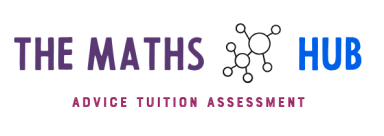Tuition
Frequently Asked Questions
1. How do you tutor? Tutoring a pupil with dyscalculia requires a specialist approach. Dyscalculic learners often have poor working memory and long-term memory for mathematical facts, making traditional methods ineffective. Multisensory tutoring allows the learner’s stronger memory channels to compensate for weaker ones. Concrete manipulatives (or virtual ones if tutoring online) help pupils model, understand, and solve abstract mathematical problems. Tutoring proceeds at a pace suitable for the student, moving from concrete to visual and abstract representations of maths. Regular revision sessions help students revisit previously learned material.
2. Why do you assess a pupil before starting tutoring? Tuition is highly individualized and begins with an assessment to identify a student’s strengths and weaknesses. The assessment consists of short, practical activities and standardized tests to determine where more support is needed. The results guide the teaching practice but do not diagnose dyscalculia.
3. How long does the assessment take? Typically, an assessment is completed over two one-hour sessions, but this may vary.
4. Will the results of the assessment be available? Yes, the results can be provided. The cost of an assessment with a full written report is £350, while an assessment with a verbal report is £175.
5. Can you diagnose dyscalculia? Yes, a full diagnostic assessment can be carried out, but this requires a different approach than an assessment for teaching and learning practice. The cost of a full diagnostic assessment is £600.
6. Is tuition once a week enough? While more sessions can lead to better outcomes, at least one session a week is important. At the end of each session, pupils receive materials to practice daily, such as flashcards, recommended apps, games, or other homework.
7. How long is a session? Each session lasts 1 hour. Shorter sessions are available on request.
8. How much does a session cost? A session costs £60 per hour. If you are experiencing financial difficulties, please use the contact form below.
9. Can you guarantee a pass at GCSE or Functional Skills Maths? No tutor or teacher can guarantee a pass, as achieving a pass depends on many factors. However, every effort will be made to support your child and help them achieve the best possible outcome in maths, which might be increased understanding, reduced anxiety, and/or more confidence.
10. Can you tutor at my home? Unfortunately, due to existing commitments, tuition cannot take place at a pupil’s home.
11. Do you tutor online? Yes, tuition can be conducted online.
12. Do you tutor at weekends? Currently, tuition takes place on weekdays only.
13. Do you tutor during the holidays? During school holidays, a limited number of sessions may be available. These may not align with the usual schedule. Please enquire for further details.
14. Do I need to purchase any equipment? A pupil may benefit from having concrete materials such as tokens, Cuisenaire rods, base 10 materials, and double-sided counters, as well as flashcards and a record card box.
15. Do you tutor small groups? No, tuition is highly individualized based on the results of the assessment. Group tutoring would dilute the content and not meet individual needs.
16. Can you attend meetings or talk to a pupil’s teachers? Yes, where possible. See the fees section for more information.
If you have further questions, please get in touch for more information.
©Copyright. All rights reserved.
We need your consent to load the translations
We use a third-party service to translate the website content that may collect data about your activity. Please review the details in the privacy policy and accept the service to view the translations.
